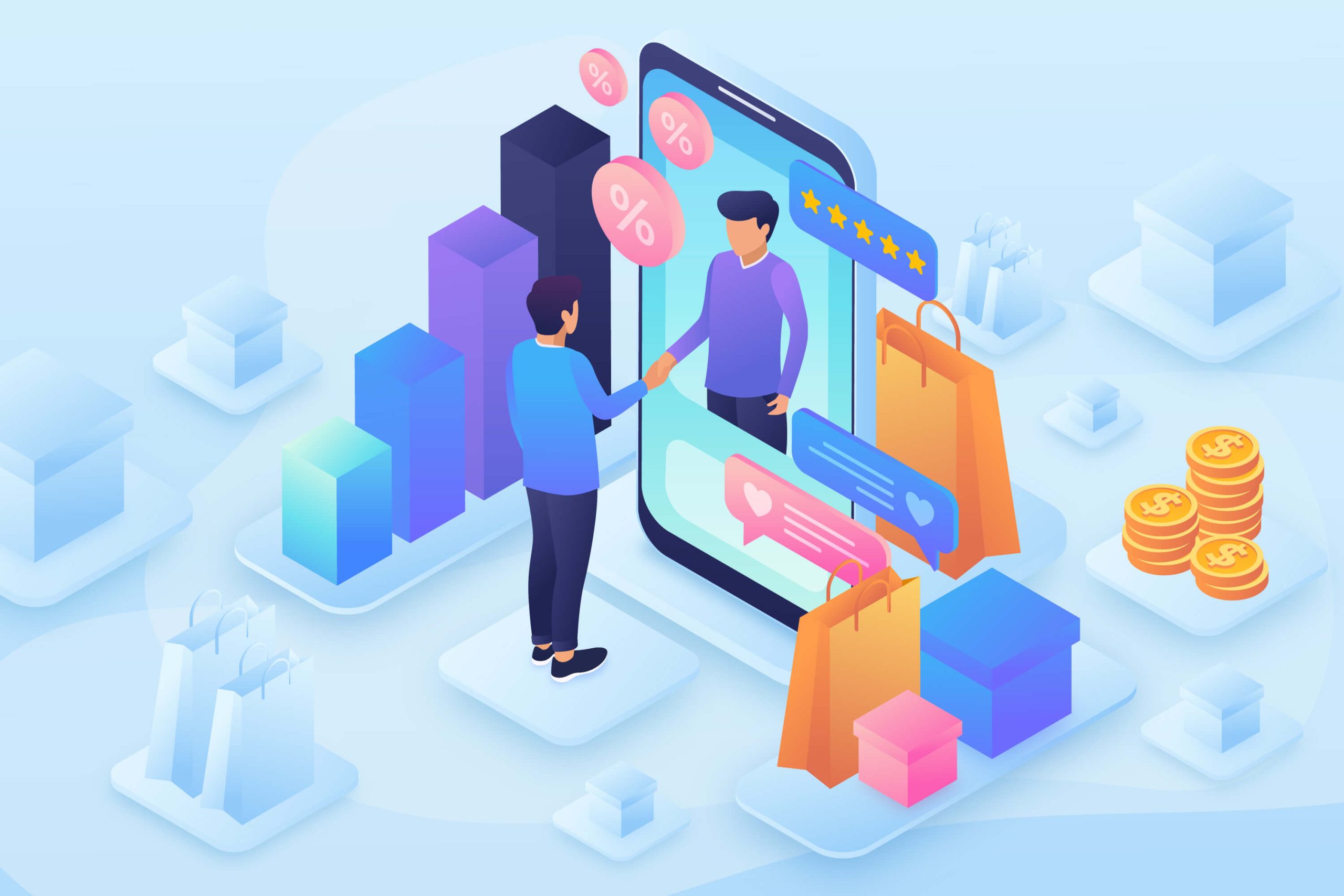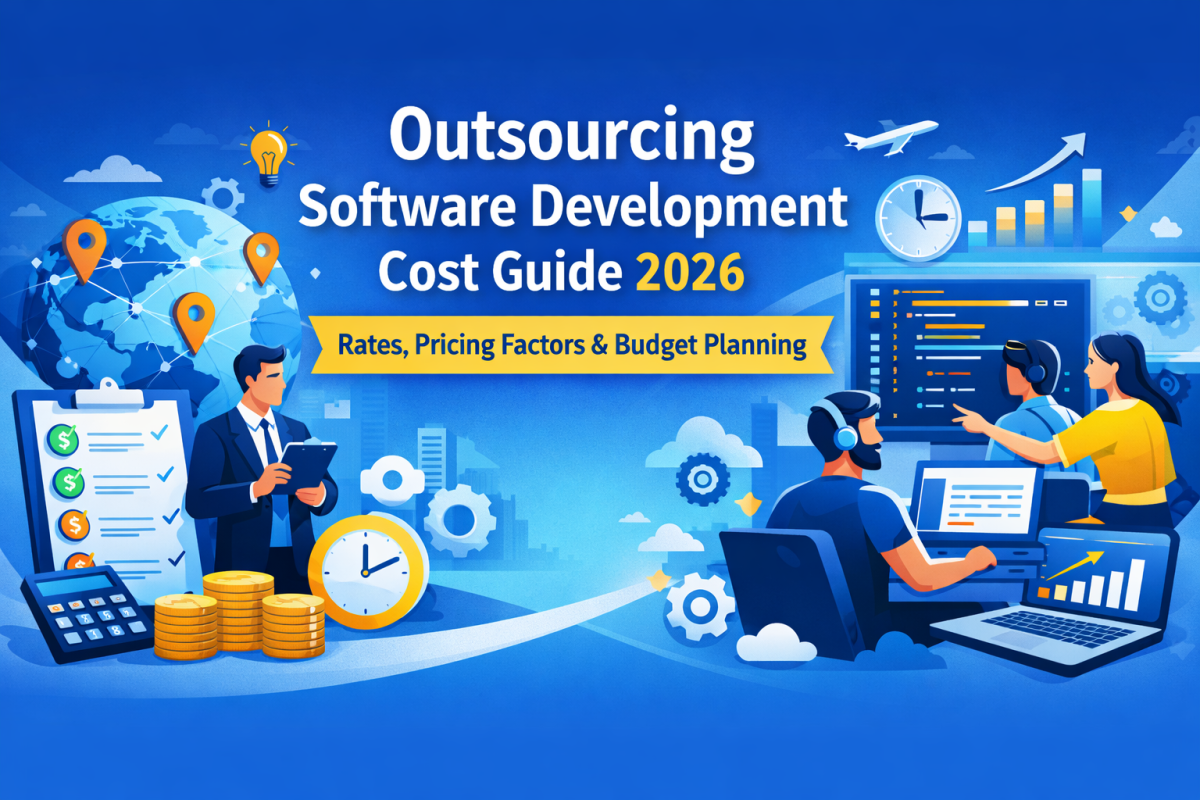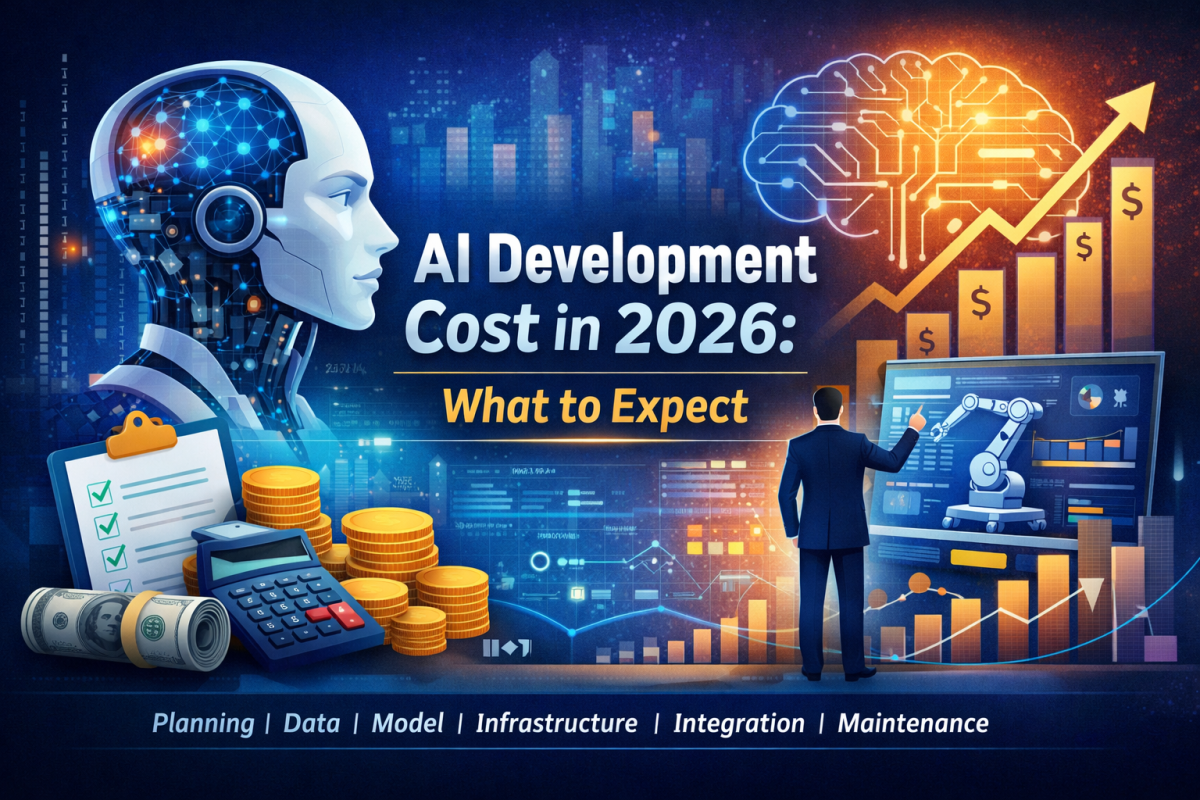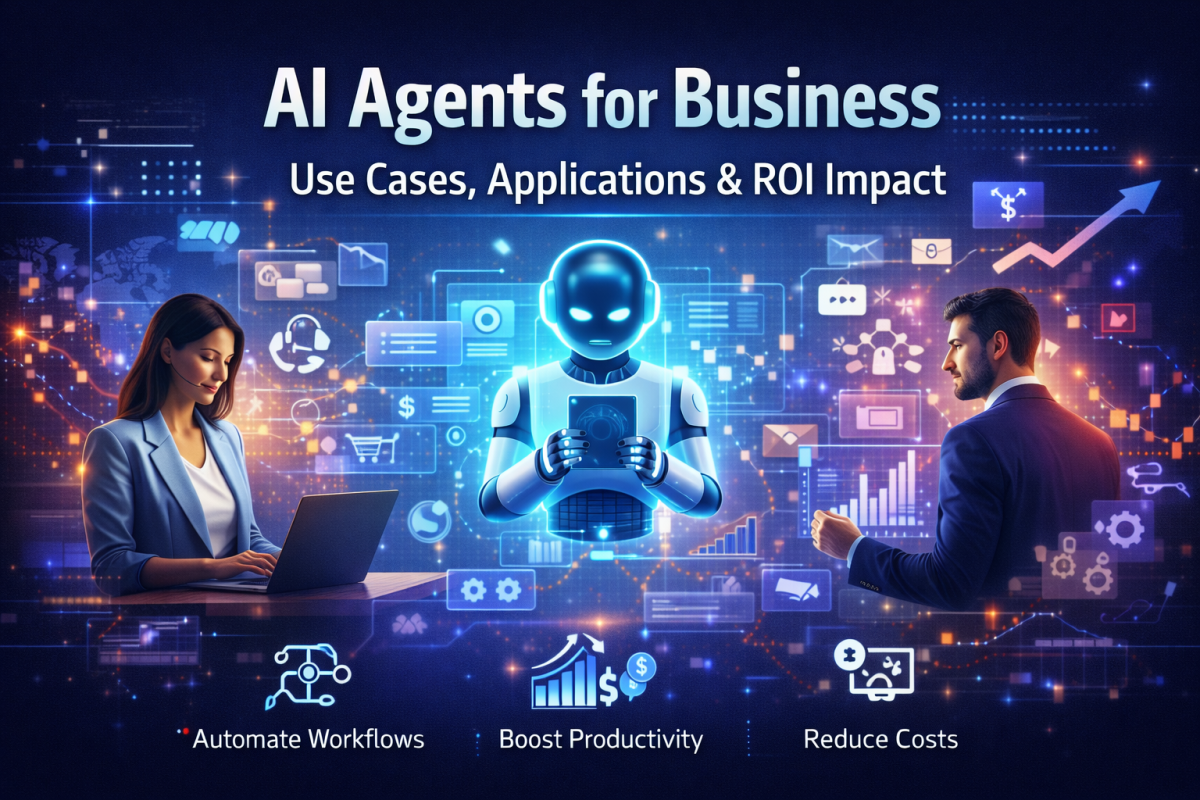Tired of losing sales because customers bounce before they get answers? A well-built chatbot for retail can fix that.
Whether it’s retail or only eCommerce, there is a well-known saying that the customer is the king. And today’s shoppers expect fast replies, tailored suggestions, and real-time support, all without waiting on hold or digging through FAQ pages.
So, for your customer-based business, retail chatbots give you the power to handle hundreds of queries at once, all while keeping the experience personal. How?
As a top chatbot development company, the Vrinsoft team has seen firsthand how the right type of retail chatbot helps businesses,
- Reduce cart abandonment by resolving purchase doubts instantly
- Improve average order value through personalized upselling
- Assist users in finding the right products quickly
- Provide real-time order tracking and support
- Handle repetitive questions without human involvement
A smart chatbot for retail and ecommerce acts like your always-on sales representative, support agent, and product expert.
If you’re a retailer thinking about automation but not sure where to start, this guide covers everything. You’ll learn what a retail industry chatbot really does, what benefits to expect, how top brands are using it, and what steps to follow to build your own.
By the end, you’ll know why chatbots for retailers are no longer optional, but a tool for a competitive advantage.
What is a Chatbot for Retail?
A retail chatbot is an AI-powered assistant that chats with your customers across platforms like websites, mobile apps, and messaging channels. It answers product questions, helps with order tracking, suggests items based on preferences, and even completes purchases, all in real time.
Whether it’s a simple rule-based bot or one powered by machine learning, the goal stays the same: faster support, better engagement, and more conversions.
Chatbots for retail industry are built to reduce friction in the buying journey and offer 24/7 support without relying on human agents.
Why is it Essential to Invest in Chatbot for Retail Industries?
If you’re running a retail or ecommerce business, adding a chatbot for retail is a smart move that helps you stay competitive and improve revenue.
Here’s how it can work for you,
1. Be Available 24/7 Without Extra Staff
Your customers expect answers right away. A retail chatbot responds instantly, day or night, handling product questions, order updates, or returns without delays.
2. Handle More Customers Without Hiring More Agents
During high-traffic periods like holidays or big sales, support requests can pile up. Chatbots for retailers handle thousands of queries at once, keeping things moving without the extra payroll.
3. Recover Abandoned Carts with Real-Time Help
Many shoppers leave without buying because something’s unclear. A chatbot for retail and ecommerce can step in at the right moment, answer questions, suggest options, or offer a discount to bring them back.
4. Offer a Personalized Experience for Every Shopper
Your customers want more than generic responses. AI-powered chatbots for retail industry learn from browsing behavior and past purchases to recommend products they’re more likely to buy.
5. Cut Costs Without Cutting Quality
By automating common queries, you can reduce support costs and free up your team to focus on complex issues without sacrificing the quality of service.
6. Make Product Search Effortless
Shoppers don’t always know what to look for. A chatbot guides them based on needs, preferences, and filters, making product discovery fast and frustration-free.
7. Use Chat Data to Improve Your Business
Every conversation reveals something useful. With retail AI chatbots, you gain insights into what customers want, where they get stuck, and how to improve your online store.
Types of Retail Chatbot Development
Not all chatbots serve the same purpose. Depending on your retail model and customer needs, you can choose from several types of retail chatbots designed to streamline engagement, support, and conversions.
1. FAQ Chatbots
Ideal for automating answers to common questions across your retail platform. Saves time and improves the shopping experience.
- Automates repetitive queries like return policies and delivery time
- Reduces support load during peak hours
- Enhances satisfaction with quick replies via your retail chatbot
2. Product Recommendation Bots
Perfect for ecommerce sites looking to offer smart suggestions. These chatbots for retail and ecommerce increase basket value with AI-powered advice.
- Suggests products on the basis of user behavior and preferences
- Upsells and cross-sells automatically
- Personalizes the journey using chatbots for retailers
3. Conversational Commerce Bots
Let your customers browse, choose, and buy without leaving the chat. A must-have for mobile-first retailers.
- Guides users from interest to checkout in one chat
- Supports real-time product availability
- Converts more with a streamlined chatbot for retail
4. Order Tracking and Support Bots
Keep your customers informed about orders and reduce post-sale inquiries with a dedicated retail industry chatbot.
- Sends real-time shipping and delivery updates
- Answers “Where’s my order?” instantly
- Decreases support tickets with automation
5. In-Store Assistant Bots
Fill in the gap between your physical store and online experience with intelligent in-store chatbots.
- Helps customers locate items in-store
- Checks live inventory across locations
- Enhances the shopping experience using chatbots for retail industry
6. Feedback and Review Bots
Use this chatbot for retail to collect insights while customers are still engaged, not after the moment passes.
- Gathers ratings and feedback post-purchase
- Identifies service or product gaps
- Supports improvement based on real-time input
Benefits of Chatbots for Retail and Ecommerce
Having a retail chatbot is like onboarding a 24/7 customer representative who will reply, collect data, scale, and assist shoppers through checkouts. So, talking about benefits, there are numerous benefits.
Let’s have a quick look at some of the major ones,
1. Improve Conversions with Real-Time Engagement
Chatbots interact with shoppers at key moments like when they hesitate or need product info. A timely suggestion or offer can nudge them toward purchase. This live, automated engagement increases conversion rates without relying on manual follow-ups or complicated email funnels.
2. Improve Customer Satisfaction and Retention
Shoppers value quick, accurate answers. A chatbot for retail provides instant support, reducing frustration and building trust. Happy and satisfied shoppers usually return and refer others, helping your brand grow through stronger loyalty and consistent service experiences.
3. Streamline Pre- and Post-Sale Support
Chatbots handle everything from product inquiries to order tracking and return requests. By automating these repetitive tasks, you reduce pressure on your support team while ensuring fast, accurate responses. It creates a smoother shopping experience before and after the sale.
4. Reduce Human Error in Routine Processes
Manual support can lead to inconsistent answers or missed steps. Retail industry chatbots follow clear logic every time, delivering reliable information and reducing costly mistakes. This consistency improves service quality and builds confidence in your brand’s customer support.
5. Collect Actionable Data Without Surveys
Every chatbot conversation reveals useful insights like common questions, product preferences, and reasons for cart abandonment. Unlike traditional feedback forms, this data is gathered naturally and in real time, helping you adjust product offerings, promotions, and site structure based on actual user behavior.
6. Support Omnichannel Experiences
Your customers might connect via mobile, desktop, or social media. Chatbots for retailers provide consistent help across all platforms, keeping conversations smooth and connected. This creates a more unified experience no matter where your customers choose to shop or chat.
Top Use Cases and Examples of Retail Chatbots
Retail brands across the globe are using chatbots to improve customer service, increase sales, and streamline support. Here are three practical examples of how chatbots for retail and ecommerce are creating real results,
1. H&M’s Chatbot on Kik
H&M uses a chatbot on Kik to guide users through product discovery. This retail AI chatbot asks about style preferences, then shows clothing options with a swipe interface. It even helps build outfits, making shopping easier and more engaging for younger audiences.
2. Sephora’s Virtual Assistant
Sephora’s chatbot helps users book appointments, get beauty tips, and find the right products through a quick quiz. It combines service and personalization, showing how chatbots for retailers can drive both offline visits and online sales.
3. eBay’s ShopBot
eBay’s chatbot acts like a personal shopping assistant. Users tell it what they’re looking for, and it fetches top product matches with filters applied. This reduces search time and helps users find relevant items faster than using the standard search bar.
These examples show how retail industry chatbots aren’t just about automation, but they’re built to improve the way customers shop.
How to Create a Successful Retail Chatbot?
Building a high-performing chatbot for retail involves more than plugging in automation. You need a clear roadmap that balances tech with customer experience.
Here’s how to approach it step by step,
1. Define Your Business Goals
Start with clarity. Ask yourself,
- Do you want to reduce the support load?
- Are you aiming to increase conversions?
- Need to guide product search or handle order updates?
Defining your goals ensures your retail chatbot stays focused and aligned with your store’s objectives.
2. Choose the Right Chatbot Type
Not every bot suits every use case.
- Use rule-based bots for simple FAQs.
- Go for AI-powered chatbots for retailers if you need personalized conversations, recommendations, or multi-step queries.
The right type depends on your use case and how advanced you want the experience to be.
3. Map Out Smart User Flows
Think through how customers interact with your store. Design paths that guide them from greeting to resolution, whether it’s product search, order tracking, or returns.
A well-structured retail industry chatbot improves navigation, answers questions fast, and keeps users engaged through every step.
4. Connect with Your Backend Systems
Your chatbot must sync with,
- eCommerce platforms
- CRMs
- Inventory and shipping tools
These connections let your chatbot for retail and ecommerce give accurate responses like showing livestock levels or tracking an order in seconds.
5. Train the Bot Using Real Data
Use previous support chats, common questions, and customer behavior to build intent models. AI chatbots for retail industry learn faster when trained on actual customer language and use cases.
The more data it sees, the better it performs over time.
6. Test Before You Launch
Don’t go live without testing across,
- Mobile and desktop
- All major use cases
- Escalation to live agents
This helps identify weak spots before real users get stuck. A solid retail chatbot should offer a smooth and frustration-free experience from day one.
7. Monitor and Improve Regularly
Post-launch, track,
- Chat success rate
- Common drop-off points
- Missed intents
Use this feedback to optimize. Even the best chatbots for retailers need updates to stay useful, relevant, and conversion-friendly over time.
Features Your Retail Chatbot Should Include
A successful chatbot for retail needs more than basic messaging capabilities. To deliver real value, it should include features that improve customer experience, drive sales, and reduce support workload. Here’s what to include:
1. Natural Language Processing (NLP): Enables the chatbot to understand and respond to customer queries accurately, even when phrased in different ways. NLP helps create smoother conversations across all chatbots for retail industry use cases.
2. Product Search and Filtering: A strong retail chatbot should help users quickly find products using keywords, filters, or categories, just like they would in your site’s search bar.
3. Order Tracking Integration: Customers often ask, “Where is my order?” Make sure your chatbot connects with your order management system to give real-time tracking updates.
4. CRM and Inventory Sync: Connect your chatbot for retail and ecommerce with backend systems to access customer data, suggest personalized items, and display live stock availability.
5. Live Agent Handoff: When queries get too complex, the chatbot should smoothly transfer users to a human support agent without losing chat history.
6. Multichannel Availability: Chatbots for retailers should work across your website, mobile app, and social platforms to maintain consistent communication everywhere your customers shop.
Challenges in Retail AI Chatbot Development and How Experts Overcome Them
Before planning, have a look at these challenges which often push back businesses even after investing in retail chatbot development. Here are the key challenges along with how expert companies like Vrinsoft overcome them,
Challenge 1: Inaccurate Understanding of Customer Intent
Retailers often struggle with chatbots giving irrelevant replies due to weak natural language capabilities.
Solution: Experts use advanced NLP models trained on retail-specific queries to improve accuracy. A fine-tuned AI chatbot for retail can understand slang, typos, and product-specific terms, leading to more helpful responses.
Challenge 2: Integration with Legacy Retail Systems
Many retail businesses rely on older CRM, inventory, or POS systems that don’t easily connect to AI chatbots.
Solution: Top chatbot developers build custom middleware to connect retail chatbot solutions with outdated systems. This ensures a smooth data flow and a more personalized shopping experience for users.
Challenge 3: Handling Complex or Emotional Customer Requests
Chatbots can fall short when conversations become emotionally charged or complex.
Solution: Experts design chatbots for retailers with clear escalation rules. When the bot detects frustration or confusion, it automatically passes the chat to a human agent without losing context, preserving customer satisfaction.
Why Vrinsoft Technology is a Top Choice for Retail AI Chatbot Development Worldwide?
Retailers across the globe count on Vrinsoft Technology for AI chatbot development that’s tailored, scalable, and built to perform. The team blends retail knowledge with AI expertise to create smart bots that help brands connect, convert, and retain customers.
Businesses choose us for our,
- 15+ years of experience in chatbot and AI development
- Team skilled in developing custom-built bots for ecommerce platforms like Shopify and Magento
- Creating NLP-driven chatbots that offer real-time customer assistance
- Dedicated AI developers for hire and full post-launch support
From improving shopping experiences to streamlining customer service, Vrinsoft builds AI chatbots that match the pace of modern retail.
Build a Robust Retail AI Chatbot with Vrinsoft’s Dedicated Developers for Hire
Looking to launch a powerful AI chatbot for your retail business? Vrinsoft’s dedicated developers help you create intelligent, user-focused chatbot solutions that improve engagement, automate support, and drive conversions. From handling FAQs to offering product suggestions, our retail AI chatbot solutions are built to support sales and service teams around the clock.
As a trusted AI ML development company, Vrinsoft offers custom chatbot development backed by natural language processing, machine learning, and retail experience. Our developers work closely with your business needs, providing full cycle chatbot integration for platforms like Shopify, Magento, and WooCommerce.
If you’re ready to strengthen customer communication, reduce support load, and offer real-time shopping assistance, Vrinsoft is your technology partner.
Get in touch now to hire dedicated AI developers and launch your retail chatbot with confidence.
Contact Vrinsoft – your AI ML development company for retail success.
FAQs – AI Chatbot for Retail Industry
Here are answers to some of the most asked questions related to AI chatbots for retail industry,
Q1. How are chatbots used in retail?
Ans: Chatbots for retail are used to answer product questions, track orders, and assist customers 24/7. They improve engagement, reduce costs, and enhance sales across the retail and ecommerce industry.
Q2. Can I use a chatbot for customer service?
Ans: Yes, many businesses use chatbots for retailers to handle support tasks like FAQs, returns, and shipping updates. They ensure quick responses and better customer experiences without needing human agents.
Q3. What are the three types of chatbots?
Ans: There are three types: rule-based, AI-powered, and hybrid chatbots for retail industry. Each serves different use cases depending on complexity, automation needs, and customer interaction levels.
Q4. What are some common examples of chatbots used in everyday life?
Ans: You’ll find retail chatbots on websites, messaging apps, and ecommerce platforms guiding shoppers or handling orders. For custom solutions, partner with a trusted AI ML development company.










